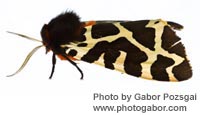Research Focus
Our laboratory has pioneered methods to manipulate specific alternative splicing events. Such a modulation can be achieved by using antisense oligonucleotides that bind to splice sites or splicing enhancer sequences. In this context we are studying possible applications of a novel type of DNA derivative, tricyclo-DNA. For many aspects, however, it would be advantageous to have the antisense sequences expressed permanently from within the relevant cells, resulting in a gene therapeutic approach to splicing modulation.
We have shown that derivatives of U7 snRNA (a short non-coding RNA normally involved in histone RNA 3' processing) can be used to efficiently induce the skipping of internal exons from a targeted mRNA. This has been achieved in the context of genetic (β-thalassemia, Duchenne muscular dystrophy) or acquired diseases (HIV/AIDS). The therapeutic U7 snRNA accumulates as a stable small ribonucleoprotein particle in the nucleus, that is, the cell compartment where splicing occurs. As it will only exert its effect in cells expressing the target pre-mRNA, the U7 snRNA has no unwanted side effects. Recent evidence indicates that the U7 snRNA derivatives can also be modified to bind certain additional proteins that will participate in splicing modulation.
In particular, we have constructed a bifunctional U7 snRNA that can be used to tether a splicing stimulatory protein specifically to exon 7 of SMN2. The stable expression of this RNA improves the use of exon 7 and thereby strongly stimulates the production of SMN protein in fibroblasts from patients affected by deadly human disorder Spinal Muscular Atrophy. If this correction could be effected in motoneurons of the patients' spinal cord, it might prevent the development of the disease. For stable transduction of these short RNA transgenes into live cells and animals, we are using lentiviral and, in the near future, also adeno-associated viral vectors.
Publications
- Nlend Nlend, R., Meyer, K. and Schümperli, D. (2010). Repair of pre-mRNA splicing: Prospects for a therapy for Spinal Muscular Atrophy. RNA Biology 7, [Epub ahead of print].
- Ittig, D., Luisier, S., Weiler, J., Schümperli, D. and Leumann, C.J. (2010). Improving gene silencing of siRNAs via tricyclo-DNA modification. Artificial DNA 1, 1-8.
- Ruepp, M.-D., Aringhieri, C., Cardinale, S., Paro, S., Vivarelli, S., Schümperli, D. and Barabino, S.M.L. (2009). Mammalian pre-mRNA 3' end processing factor CF Im68 functions in mRNA export. Molecular Biology of the Cell 20, 5211-5223.
- Ittig, D., Schümperli, D. and Leumann, C.J. (2008). Tc-DNA modified siRNA. Nucleic Acids Symposium Series (Oxf) 52, 501-502.
- Meyer, K., Marquis, J., Trüb, J., Nlend Nlend, R., Verp, S., Ruepp, M.-D., Imboden, H., Barde, I., Trono, D. and Schümperli, D. (2008). Rescue of a severe mouse model for Spinal Muscular Atrophy by U7 snRNA-mediated splicing modulation. Human Molecular Genetics 2008. (doi: 10.1093/hmg/ddn382)
- Asparuhova, M.B., Barde, I., Schranz, K., Trono, D. and Schümperli, D. (2008). Development and characterisation of a triple combination gene therapy vector inhibiting HIV-1 multiplication. Journal of Gene Medicine 10, 1059-1070.
- Marquis, J., Kämpfer S.S., Angehrn, L. and Schümperli, D. (2008). Doxycycline-controlled splicing modulation by regulated antisense U7 snRNA expression cassettes. Gene Therapy 16(1), 70-7.
- Marquis, J., Meyer, K., Angehrn, L., Kämpfer S.S., Rothen-Rutishauser, B. and Schümperli, D. (2007). Spinal Muscular Atrophy: SMN2 pre-mRNA splicing corrected by a U7 snRNA derivative carrying a splicing enhancer sequence. Molecular Therapy 15, 1479-1486.
- Scholl, R., Marquis, J., Meyer, K. and Schümperli, D. (2007). Spinal Muscular Atrophy: position and functional importance of the branch site preceding SMN exon 7. RNA Biology 4, 34-37.
- Asparuhova, M.B., Marti, G., Liu, S., Serhan F., Trono, D. and Schümperli, D. (2007). Inhibition of HIV-1 multiplication by a modified U7 snRNA inducing Tat and Rev exon skipping. Journal of Gene Medicine 9, 323-334.
- Asparuhova. M., Kole, R. and Schümperli, D. (2004). Antisense derivatives of U7 and other small nuclear RNAs as tools to modify pre-mRNA splicing patterns. Gene Therapy and Regulation 2, 321-349 Review.
- Ittig, D., Liu, S.-K., Renneberg, D., Schümperli, D. and Leumann, C.J. (2004). Nuclear antisense effects in cyclophilin A pre-mRNA splicing by oligonucleotides: a comparison of tricyclo-DNA with LNA. Nucleic Acids Research 32, 346-353.
- Brun, C., Suter, D., Pauli, C., Dunant, P., Lochmüller, H., Burgunder, J.M., Schümperli, D. and Weis, J. (2003). U7 snRNAs induce correction of mutated dystrophin pre-mRNA by exon skipping. Cellular and Molecular Life Sciences 60, 557-566.
- Renneberg, D., Bouliong, E., Reber, U., Schümperli, D. and Leumann, C.J. (2002).eic Antisense properties of tricyclo-DNA. Nucl Acids Research 30, 2751-2757.
- Suter, D., Tomasini, R., Reber, U., Gorman, L., Kole, R. and Schümperli, D. (1999). Double-target antisense U7 snRNAs promote effficient skipping of an aberrant exon in three human ß-thalassemic mutations. Human Molecular Genetics 8, 2415-2423.
- Gorman, L., Suter, D., Emerick, V., Schümperli, D. and Kole, R. (1998). Stable alteration of pre-mRNA splicing patterns by modified U7 small nuclear RNAs. Proceedings of the National Academy of Sciences USA 95, 4929-4934.
Key lab techniques: reporter gene construction, protein:protein interaction, protein:RNA interaction, lentiviral vectors, RNAi by short hairpin (sh)RNAs, -RNA expression analyses (RT-PCR, including real-time assays, primer extension, RNAse protection assays), protein expression analysis (Western blot, immunofluorescence), thalassemia, spinal muscular atrophy, HIV/AIDS.
Key lab reagents: U7 and other small nuclear RNA expression cassettes, shRNA expression cassetttes, lentiviral vectors.
Lab contact: Daniel Schümperli: daniel.schuemperli@izb.unibe.ch
Lab website: www.izb.unibe.ch/res/schuemperli/index.php
BERNA group website: www.izb.unibe.ch/res/schuehome/rnagroup/rnagroup.html
|






